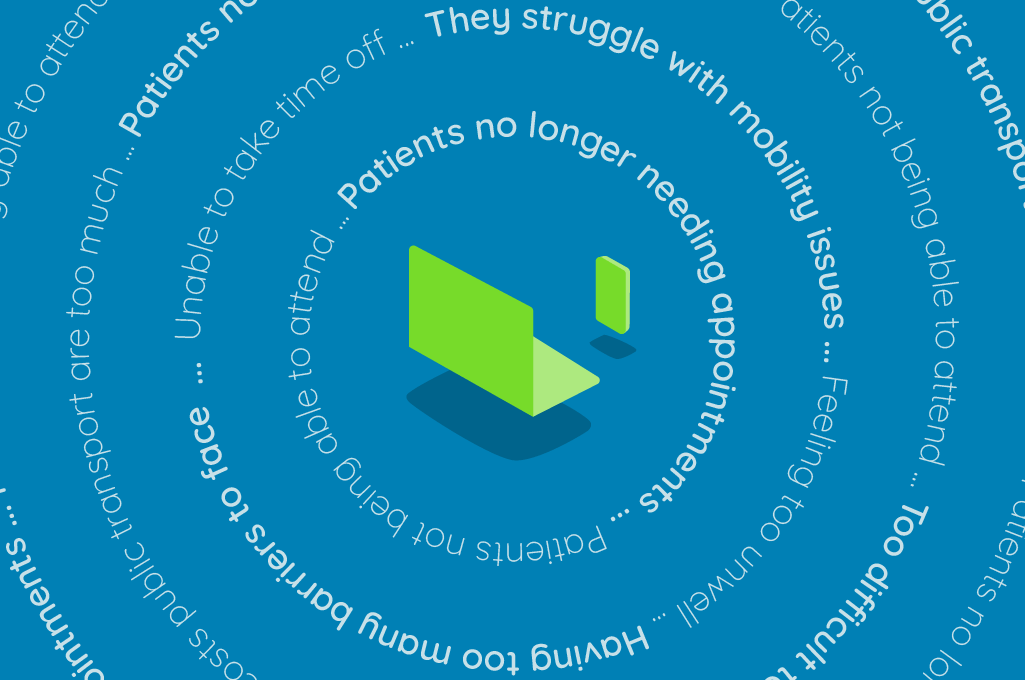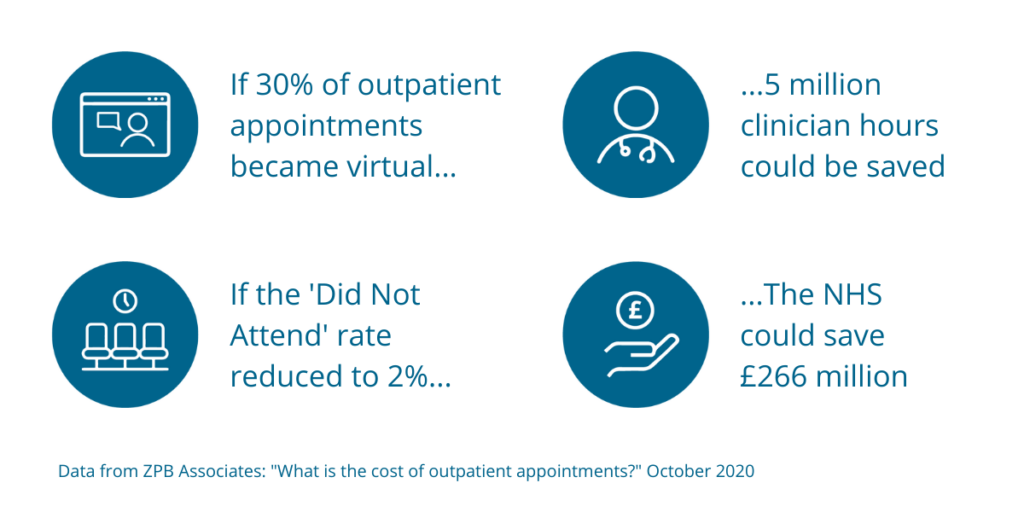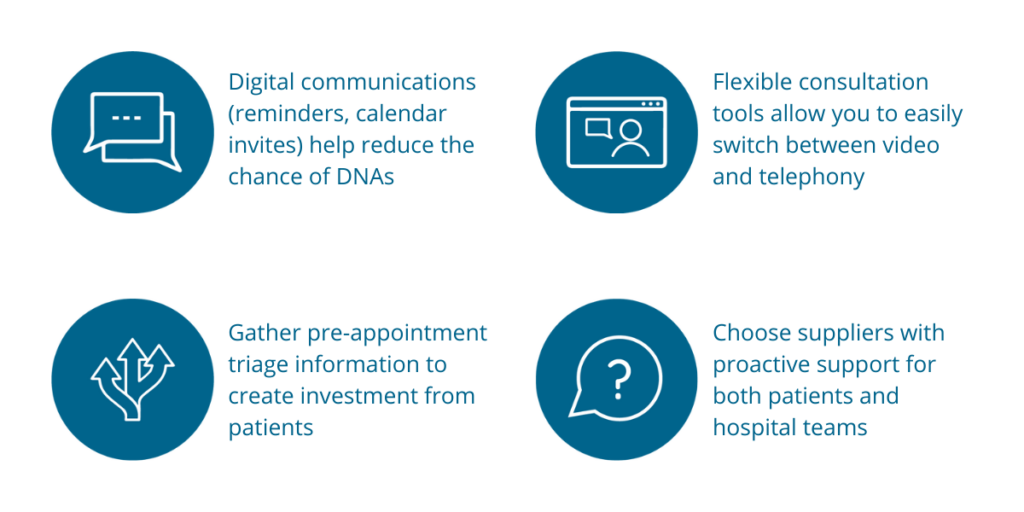How much money could the NHS save by reducing Outpatient DNAs?

According to Hospital Episode Statistics (HES) data in 2019-20, outpatient attendances (whether first or subsequent) as a proportion of total appointments have decreased from 80.1% to 77.2% in the last 10 years. NHS England and Improvement says DNAs have an enormous impact on the healthcare system in terms of increasing both costs and waiting times.
When you consider that the average outpatient appointment cost is approximately £120 and outpatient services currently account for approximately 7% of the NHS budget, that’s a staggering amount of money that is being wasted.
What causes non-attendances?
There’s a whole host of reasons why appointments might not get attended, from a patient perspective to things that hospitals can try to tackle. The two most commonly cited reasons are patients forgetting about the appointment and clerical errors or communication failures, which mean that the patient was unaware of the appointment.
There are also other patient factors to consider, such as patients no longer needing or actually being able to attend appointments, because they struggle with mobility issues, feel too unwell or because there are too many barriers to going, such as taking time off work, travelling to the department or the costs public transport or sorting out childcare.
From a hospital perspective, poor record-keeping or communication can increase the likelihood of ‘Do not attend’ appointments (DNAs), as well as the logistics of appointments (time of appointments, booking process, notifications, rearranging or cancelling appointments).
The FutureNHS forum has recently created a DNAs Resource area – with recommended products as well as useful resources and information.
Outpatient targets in the NHS Long Term plan
As part of the NHS Long Term Plan, there is an aim for up to a third of the face to face appointments delivered in outpatient care to be avoided by 2024. It’s claimed this would save NHS England around £1.1 billion a year as well as saving patients 30 million visits to hospitals.

A recent analysis suggested that almost five million clinician hours could be saved if 30% of outpatient appointments moved to virtual consultations and £266 million could be saved by reducing ‘Do not attend’ rates for outpatient appointments to 2%.
What can you do to improve DNA rates in your department?
eConsult, the leading digital triage provider across the NHS, has been supporting DNA reduction in Outpatient settings in recent years. Over that time, with the combined expertise of our customers and as active clinicians ourselves, we’ve learned a few things that are backed up by evidence, such as NHS Service Improvement tools.

Revisit your communications to patients
Considering the two most common reasons for DNAs are patients forgetting and clerical errors or communication failures, it’s critically important that you think about how you’re communicating to patients. Letters, while a mainstay of patient communications across the NHS, are very easy to discard and might not ever reach a patient.
Digital messages are increasingly useful communication tools in the NHS. Many email providers will allow you to copy confirmation of appointment details into calendars so that patients are reminded about upcoming appointments. You could consider including a link to amend or cancel the appointment if possible. Text message reminders also help with this, in particular, if sent close to the time of the appointment.
Introducing triage
In the University Hospital of Wales over a 12-month period, one clinic using eConsult was able to bring its high DNA rate down from around 40% to nearly zero using pre-appointment triage questionnaires. Aside from being reminded about their appointment by text message, patients were investing their own time into their appointment ahead of it happening, by completing a specialist clinical history.
Flexible remote consultations
Previous research in outpatient departments in Wales found that between 8.5% and 15.7% of clinicians reported challenges in their virtual consultations that were caused by technical difficulties, such as poor audio or video quality, or problems with their internet or device. While infrastructure issues can be hard to avoid, they can be mitigated by using a flexible remote consultation provider.
eConsult provides an unbreakable consultation experience because clinicians can quickly upgrade or downgrade their consultation channel. They can make judgement decisions based on the patient’s connectivity, the clinical need and the confidence of both patients and clinicians to use technology.
The ability to switch between telephone and video means that time (and money) isn’t wasted on poor connections or trying to reschedule appointments. Our experience shows that how these types of events are recorded in clinical systems varies greatly – meaning that DNA rates might be quite different to what is currently reported. Having one provider instead of two also means you can save money from an IT budget perspective too.
We also hear positive feedback from clinicians about the ability to blur their video background, so patients are less aware of where the clinician is, and it gives clinicians the flexibility to consult in a variety of settings, including from home if needed.
It makes sense to be able to tap into the benefits of video where possible to do so, whether for building rapport or to provide a much needed visual aid. It also makes sense to use the telephone where the circumstances require it. When remote consulting is done well, both patients and clinicians love it.
Make support easy
All eConsult customers have access to our live chat support from 8am to 8pm as well as telephone support. During the week, we aim to provide a response within 5 minutes of contacting us. We know that sometimes patients might have questions about video consultations and appointments that are administrative in nature and don’t necessarily need to be answered by busy hospital teams. We’re happy to answer questions from patients and customers alike and pride ourselves on our quick and helpful support.
With that in mind, please feel free to reach out to us with any questions about how eConsult can help you and your Trust to save some money whilst improving services, reducing DNA rates and hitting your targets. Make sure that you’re taking advantage of the Elective Recovery Fund (ERF) made available by the NHS too. We’ve put together some helpful information about how our unbreakable, all in one remote consultation platform can support your ERF targets.